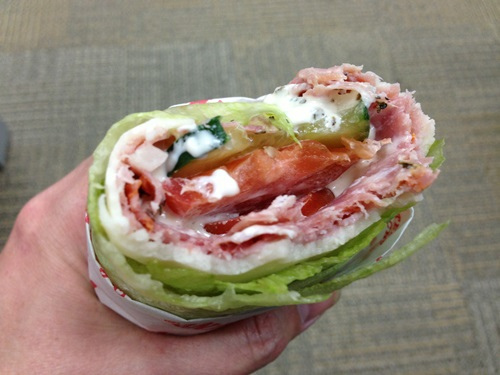What are the keto diets dangers?
Some keto diets are protein rich but virtually free from carbohydrates.
As described above, our body requires absolute glucose to function normally. The logical source for glucose is carbohydrate rich food. In the absence of these carbohydrates, the body is making glucose from its own proteins. Even if your diet is rich in protein, you will inevitably lose muscle mass, as your diet will always contain fewer calories than you need (otherwise weight loss is fundamentally impossible). Yes, a keto diet can lead to significant weight loss, but most of that weight is your own protein. A balanced low-calorie diet (ie with a proper ratio of fats, proteins and carbohydrates) is much healthier as it leads to loss of body fat while maintaining muscle mass.
Even if your diet is rich in protein, you will inevitably lose muscle mass.
Ketose can cause nausea, dizziness, balance disorder, loss of concentration and fatigue. Ketose can aggravate existing health problems, especially kidney disease.
High-protein diets, especially if you follow them for a long time, can lead to kidney stones, osteoporosis (bone depletion) and cardiovascular disease.
Three facts about keto diets
- Fact 1: Keto diets do not lead to a greater loss of fat than other diets.
- Fact 2 : Keto diets lead to an increased level of uric acid in the blood. This can cause or exacerbate renal disease, as well as joint inflammation in people with gout buildings.
- Fact 3 : The body sees a keto diet as fasting. If that diet stops, the body will try to store all incoming energy - in the form of body fat, of course. That is why the weight returns after a keto diet, and quickly, and eventually becomes larger than for the diet.
What is ketosis?
The chemical reaction in which glucose is obtained from proteins, is called gluconeogenesis. Only an adequate absorption of carbohydrates can prevent gluconeogenesis. Insufficient carbohydrate uptake (as in the case of carbohydrate-free diets) sends a dangerous side to the metabolism. If the body gets less carbohydrates than the brain needs for the required glucose, fatty acids are broken down to make an alternative fuel called the ketone bodies. Ketone bodies provide alternative energy for certain brain cells during periods of fasting. Other brain cells, on the other hand, only survive on glucose. So during fasting or a long-term carbohydrate-free diet (these two conditions are almost identical to the body) muscle protein will always be broken down for glucose production.
During fasting or a long-term carbohydrate-free diet, protein from the muscles will always be broken down to produce glucose.
A small amount of ketone acid in the body is normal. But if the production of ketone bodies exceeds the need, they hope in the blood which leads to a condition called ketosis. Ketose disrupts the acid-alkaline balance in the body. An increased level of ketone acids in the blood is called ketoneemia. The excess of ketone acids is secreted via urine, a condition known as ketoneuria. Breath that smells of acetone is a signal for ketoneemia.
To prevent muscle degradation and consequent ketosis, we need to eat at least 50 to 100 grams of carbohydrates daily. Between brackets, our brains and nerve cells, about half of all the carbohydrates we consume through our food - about 500 calories a day.
*Image source : flickr






0 comments